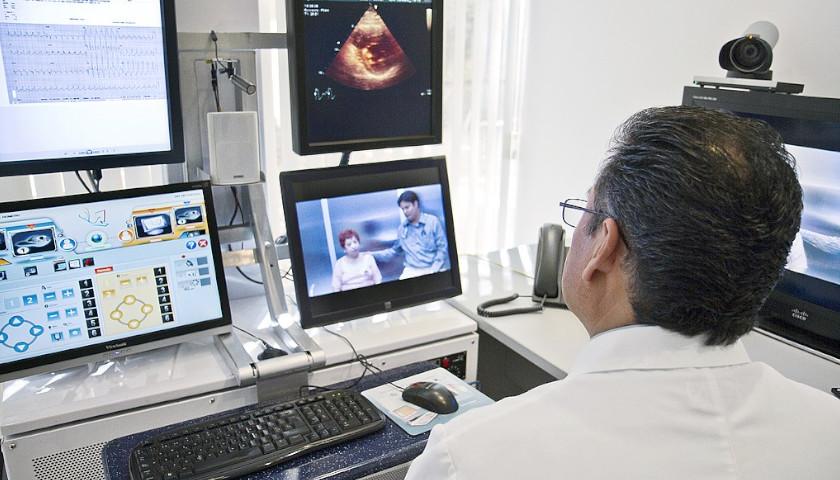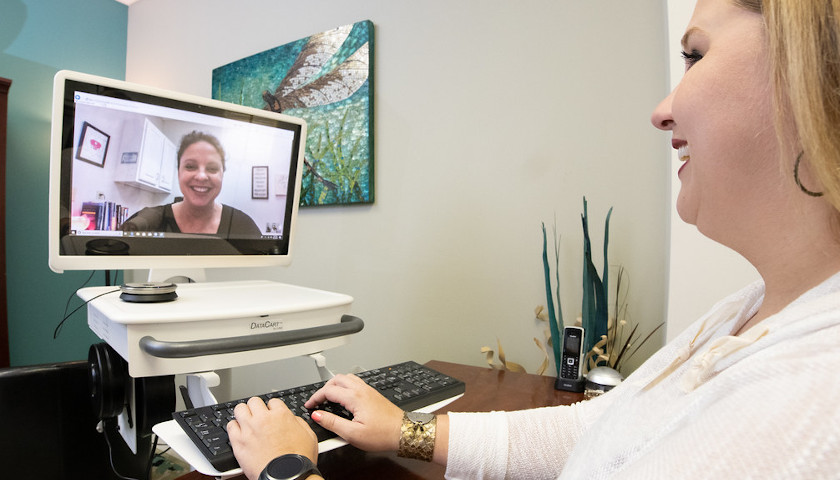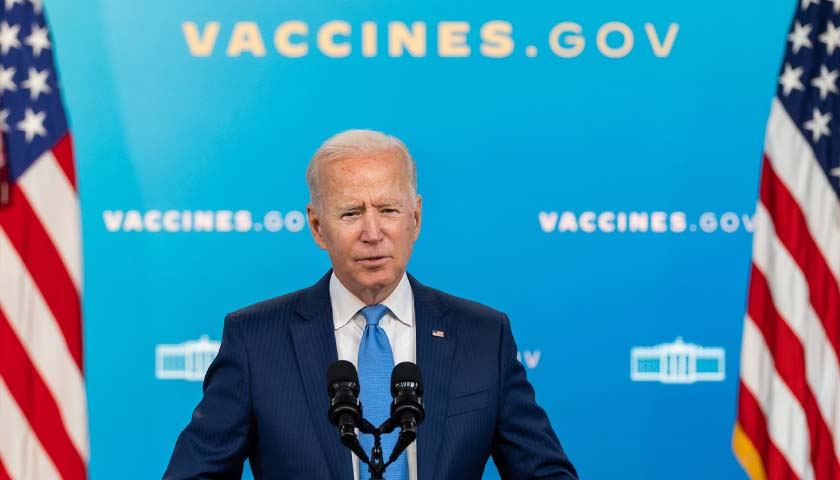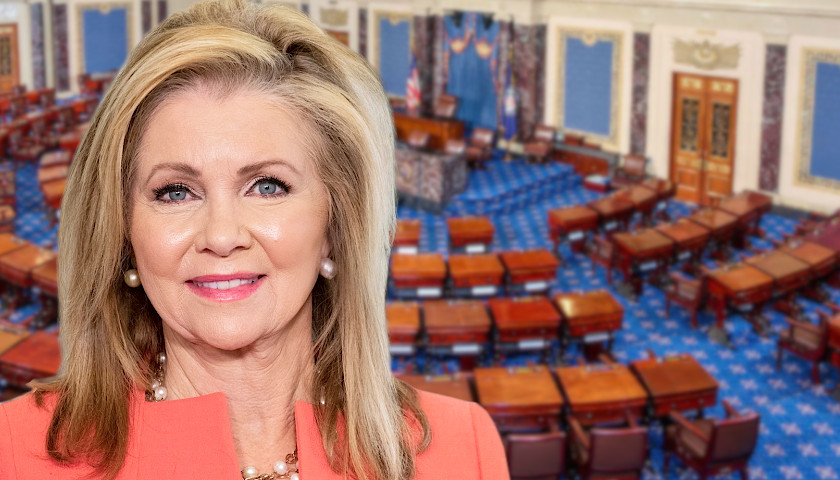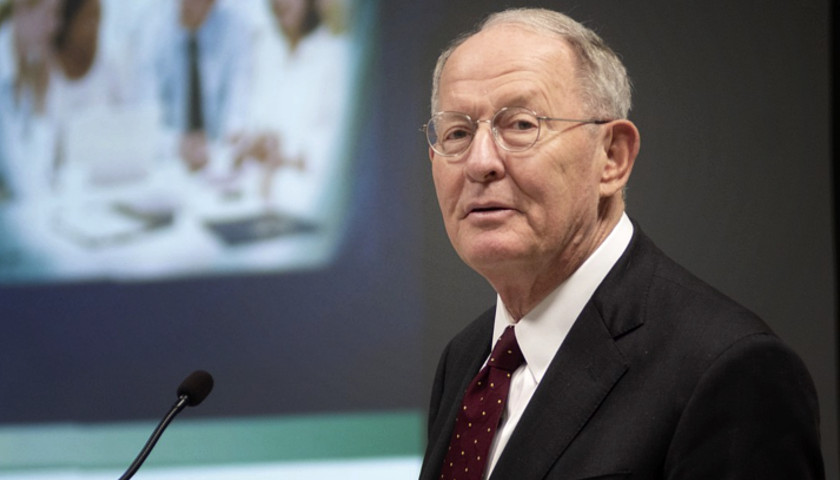Tennessee U.S. Senator Marsha Blackburn (R-TN) joined a group of her Republican colleagues in introducing the More Opportunities for Moms to Succeed (MOMS) Act on Friday.
Read the full storyTag: Telehealth
Commentary: Rural and Hispanic Communities Among Those Most Benefited by Telehealth
Telehealth has become a health care gamechanger for tens of millions of Americans.
We all know the time and effort an in-person health visit takes – travel to the appointment, time off work, hours spent in an office, follow ups that require us to do the whole process over again. But telehealth expansion in the post-COVID world has changed everything.
Read the full storyNational Pro-Life Group Condemns Democrats and Media Allies for Encouraging Abortionists to Illegally Mail Abortion Drugs to Pro-Life States
A national pro-life group is shaming Democrats for encouraging abortionists to mail dangerous abortion-inducing drugs into pro-life states after the Washington Post touted such actions are legal.
“Mailing abortion pills into pro-life states is not legal, no matter how the Democrats and their media cheerleaders want it to be,” said Marjorie Dannenfelser, president of Susan B. Anthony (SBA) Pro-Life America, in a statement sent to The Star News Network. “And the strong majority of Americans agree it is not safe.”
Read the full storyFlorida Senate Committee Approves Measure to Expand Telehealth Practice
by Andrew Powell The Florida Senate Banking and Insurance Committee met on Wednesday and approved a bill to revise the definition of telehealth by allowing audio-only patient services. Telehealth is a service that connects consumers in rural areas with health professionals from the comfort and convenience of their homes. This service includes lab tests or X-ray results, mental health treatment – which can include online therapy, counseling and medication management. Other recurring conditions like migraines or urinary tract infections can also be managed via telehealth, as well as post-surgical follow-ups, urgent care issues, physical and occupational therapy and remote monitoring services for conditions like diabetes and high blood pressure. Senate Bill 298 was presented by State Sen. Jim Boyd, R-Bradenton, who proposed to permanently include audio-only calls. “Senate Bill 298 removes a provision in the definition of telehealth that excludes audio-only telephone calls. This change allows Medicaid to elect to reimburse for audio-only telephone calls.” Boyd said. Telehealth has become a go-to for those who are not able to see a nurse or doctor. “Audio-only telehealth provides easy access for those in rural communities, its cost effective, convenient, time saving and reduces the risk of exposure in the spread…
Read the full storyCommentary: Expand Telehealth Permanently
by Diana Girnita When the fear of getting COVID-19 was high and lock-down orders were in place, telehealth was an important resource, allowing patients to connect with doctors by live video, telephone, and remote patient monitoring without overcrowding hospitals and doctors’ offices. During this time of isolation and drastic increases in mental health challenges, telehealth services provided a lifeline of critical psychiatric and behavioral healthcare to people in need. Early in the pandemic, nearly half of all states and the federal government passed laws expanding access to telehealth. These changes allowed more providers to adopt this technology and, as a result, the United States went from having 43% of community health centers using telehealth before the pandemic to 98% just months into the pandemic. With innovation and quickly evolving technology, healthcare providers can deliver more high-quality services remotely, and our laws should make it easy to do so. Yet, as of last year, only eight states have made telehealth changes permanent. Congress passed the 2022 omnibus spending bill in March that extended federal telehealth provisions through September, the end of the 2022 fiscal year. The law covers telehealth visits, including video and audio-only visits, for Medicare patients. It also reinstated the CARES Act provision allowing high-deductible health plans (which…
Read the full storyPennsylvania May Make It Easier to Offer Telehealth for Mental Health Care
Telehealth in Pennsylvania continues to make strides as temporary waivers approved during COVID-19 are made permanent.
A previous bill introduced by Rep. Jeff Wheeland, R-Lycoming, would align state and federal guidance on home health care. The latest one, HB2419, introduced by Rep. Tina Pickett, R-Bradford/Sullivan/Susquehanna, would allow psychiatrists to offer mental health services virtually like they do with in-person services.
Read the full storyTelehealth Expansion Becomes Law in Ohio
Ohio Gov. Mike DeWine has signed a bill into law that creates more options for telehealth patients and more protections for providers.
The law, in the works for nearly a year, drew praise from The American Cancer Society Action Network and The Buckeye Institute, a Columbus-based policy group that has pushed for expanded services since the beginning of the COVID-19 pandemic.
Read the full storyCommentary: Biden Needs to Decide If COVID Is Still a ‘National Emergency’
The omicron variant may be nearing its peak in some states, but across the country it’s produced a dizzying array of conflicting signals on whether the nation should remain under a COVID national emergency or move on to an endemic “new normal.”
Comedian Bill Maher’s “I don’t want to live in your mask-paranoid world anymore” monologue went viral last week, just days after the Atlantic, the standard-bearer journal for the liberal intelligentsia, ran a story headlined: “COVID Parenting Has Passed the Point of Absurdity.” Accompanying the article was a black-and-white photo of a woman frozen in a more desperate and primal state of panic than the subject of Edvard Munch’s “The Scream.”
Omicron, for most people without co-morbidities, produces much milder symptoms than do the coronavirus’s previous variants, but it’s far more infectious, racing through schools, shutting down classrooms and forcing parents to consult their district’s ever-shifting COVID “decision trees” on a seemingly daily basis.
Read the full storyReason Foundation Report Recommends Iowa Reduce Regulations in Telehealth Policy
Iowa should make a few public policy changes to improve telehealth services, which have become more common during the COVID-19 pandemic, policy analysts said in a report Reason Foundation released Wednesday.
Cicero Institute and Pioneer Institute Senior Fellow Josh Archambault and Reason Foundation Policy Analyst Vittorio Nastasi co-authored the state-by-state report, “Rating the States on Telehealth Best Practices: A Toolkit for a Pro-Patient and Provider Landscape.”
Read the full storyOhio Legislature Looks to Expand Telehealth Services
The Ohio General Assembly moved closer to permanently expanding access to telehealth for Ohioans after the COVID-19 pandemic forced the option nearly two years ago.
The Ohio House is expected to concur with House Bill 122, which passed the Senate on Wednesday, creating policies that policy groups and health care associations have pushed for since the beginning of the pandemic.
Read the full storyCommentary: Instead of Tightening Government’s Grip on Healthcare, Give Americans a Personal Option
As America begins to put the COVID-19 pandemic in the rearview, the lesson from this once-in-a-generation crisis couldn’t be clearer: We need less, not more, central planning in our lives.
For example, a study earlier this year by health economist Casey Mulligan revealed that economic lockdowns mandated by government were counterproductive, given the significant steps workplaces took to prevent the virus from spreading.
The same is true with health care. By now, most folks know the story of how Operation Warp Speed — the previous administration’s unprecedented plan to trim bureaucracy from the vaccine development process — resulted in the creation of multiple safe and effective vaccines in record time. But an equally important storyline is how states took a sledgehammer to their own bureaucracies to expand access to care for those in need.
Read the full storySenator Blackburn: Democrats Are Working with Us to Pass COVID-19 Relief
Senator Marsha Blackburn (R-TN) shared that the current COVID-19 relief bill is a bipartisan effort closer to $1 trillion. The senator explained in a press conference Thursday that the move is favored by Democratic legislators over efforts by House Leader Nancy Pelosi (D-CA) and Minority Leader Chuck Schumer (D-NY).
“The good thing is that there are Democrats that have said to Speaker Pelosi and Minority Leader Schumer that they think it is wrong to hold out for a $3 trillion dollar deal, and saddle our future generations with that debt. So they’re working with some Republicans on a bill that is closer to a trillion dollars. So, the bill that we as a Republican conference had agreed on was about a $600 billion bill.”
Read the full storyBlackburn Applauds Federal Taskforce to Improve Telehealth Access for Rural Americans
U.S. Sen. Marsha Blackburn (R-TN) is applauding a federal initiative to grow the availability of telehealth for rural areas.
The Federal Communications Commission, U.S. Department Of Health And Human Services and the U.S. Department Of Agriculture last week announced they signed a memorandum of understanding (MOU) for the Rural Telehealth Initiative.
Read the full storyTennessee Lawmakers to Consider COVID-19 Liability Protection, Telehealth Bills in Special Session
Tennessee lawmakers will return to Nashville on August 10 for a special session to consider legislation to provide COVID-19-related liability protections for health care providers, businesses and schools.
Gov. Bill Lee signed a proclamation Monday afternoon calling for the legislative special session.
Read the full storySen. Lamar Alexander: Make the Two Most Important COVID-19 Telehealth Policy Changes Permanent
U.S. Senate Health Committee Chairman Lamar Alexander (R-TN) this week weighed in on the topic of telehealth.
Alexander said the government should permanently extend at least two of the most important temporary changes in federal policy made to help patients see doctors by phone or video during the COVID-19 pandemic.
Read the full storyMarsha Blackburn: Telehealth Proves Essential During COVID-19
Patients needing care should not fear catching an illness from a doctor’s office, said U.S. Sen. Marsha Blackburn (R-TN) in a press release Friday.
Telehealth, Blackburn said, has proven an immensely beneficial form of delivering treatment during the COVID-19 pandemic.
Read the full story

